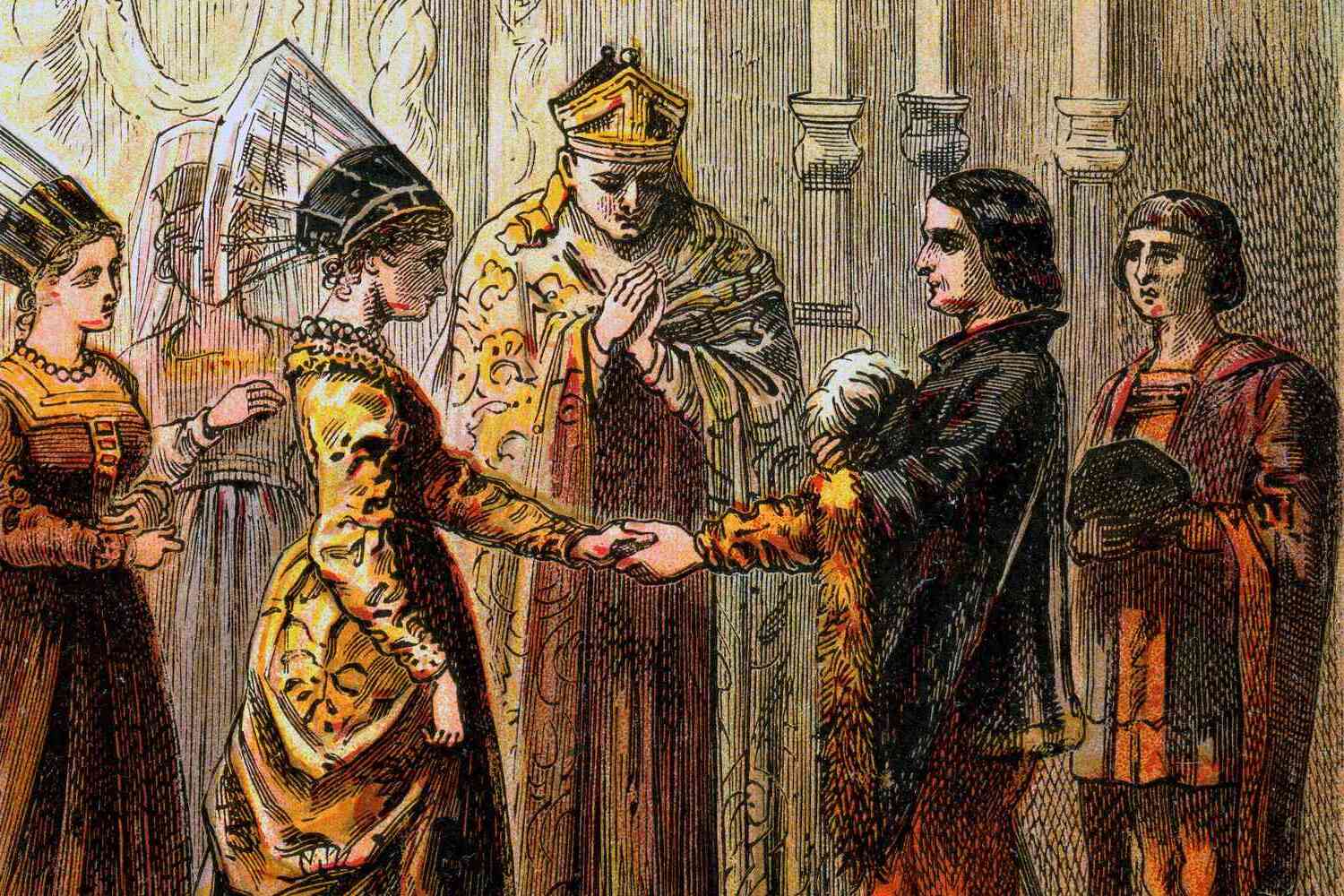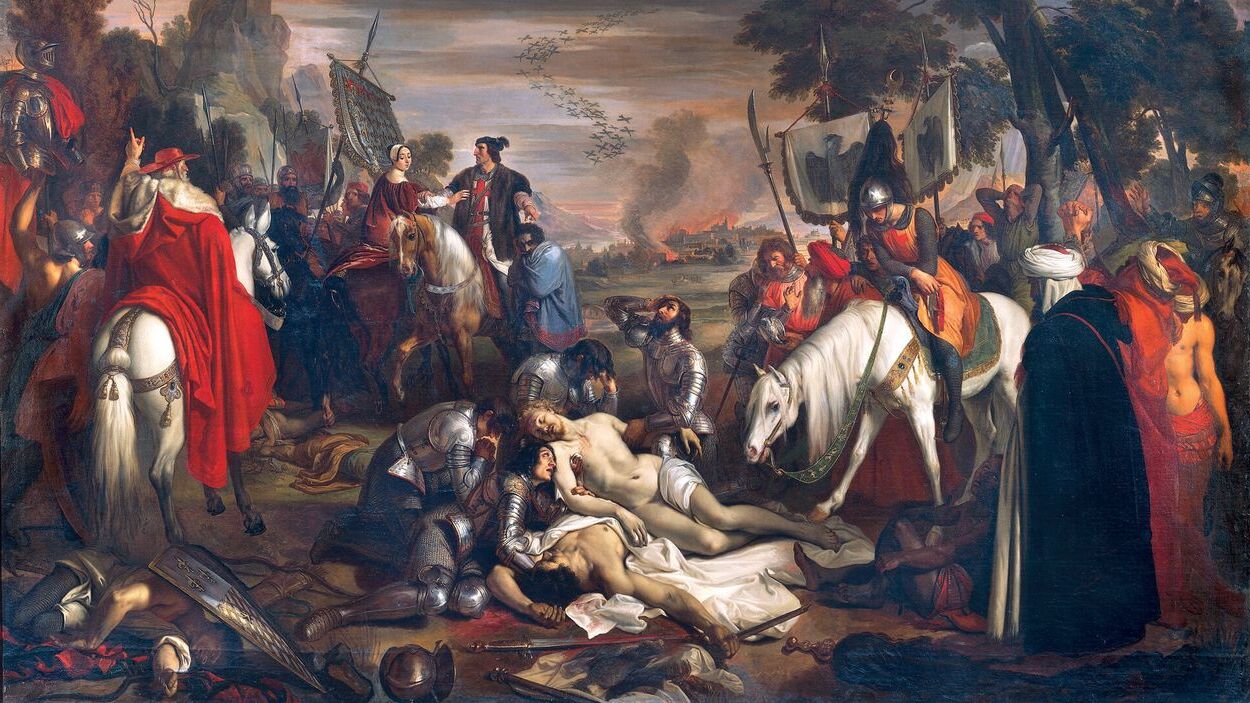
Who was Catherine of Valois? Born in 1401, Catherine of Valois was a French princess who became the Queen of England. She married King Henry V and was the mother of Henry VI. Her life was filled with political intrigue, royal drama, and personal tragedy. After Henry V's death, Catherine's secret marriage to Owen Tudor led to the rise of the Tudor dynasty. Why is Catherine of Valois significant? Her legacy includes being a key figure in the Hundred Years' War and the Wars of the Roses. Catherine's story is a blend of romance, power struggles, and historical impact.
Key Takeaways:
- Catherine of Valois, born in 1401, faced political turmoil and instability in her early life. Her marriage to Henry V of England and subsequent secret relationship with Owen Tudor shaped European history and left a lasting legacy.
- Despite facing personal challenges and political intrigue, Catherine of Valois's influence extended to the arts, fashion, and diplomacy. Her descendants, including Henry VII and Elizabeth I, played significant roles in English history.
Early Life of Catherine of Valois
Catherine of Valois was a significant historical figure whose life was filled with fascinating events and notable achievements. Let's dive into some intriguing facts about her early years.
-
Catherine of Valois was born on October 27, 1401, in Paris, France. She was the daughter of King Charles VI of France and Isabeau of Bavaria.
-
Her father, King Charles VI, was known as "Charles the Mad" due to his bouts of mental illness, which greatly impacted Catherine's childhood.
-
Catherine was the youngest of twelve children, though many of her siblings did not survive infancy.
-
Raised in the royal court, she received an education befitting a princess, learning about literature, languages, and courtly manners.
-
Despite her royal status, Catherine's early life was marked by political turmoil and instability due to her father's mental health and the ongoing Hundred Years' War between France and England.
Marriage to Henry V
Catherine's marriage to Henry V of England was a pivotal moment in her life and in European history. Here are some key facts about this union.
-
Catherine married Henry V on June 2, 1420, at Troyes Cathedral in France. This marriage was part of the Treaty of Troyes, which aimed to end the conflict between France and England.
-
The Treaty of Troyes declared that Henry V would inherit the French throne upon the death of Charles VI, uniting the two kingdoms.
-
Catherine and Henry V had one son, Henry VI, who was born on December 6, 1421, at Windsor Castle.
-
Henry V died suddenly on August 31, 1422, leaving Catherine a widow at the young age of 21.
-
After Henry V's death, Catherine's son became King Henry VI of England, though he was only nine months old at the time.
Life as a Widow
Catherine's life took many turns after the death of her husband. Here are some notable facts about her years as a widow.
-
Catherine was initially placed under strict supervision by the English court to prevent her from remarrying without royal consent.
-
Despite these restrictions, Catherine formed a secret relationship with Owen Tudor, a Welsh courtier.
-
Catherine and Owen Tudor married in secret around 1429, though the exact date is unknown.
-
The couple had at least five children together, including Edmund Tudor, who would become the father of Henry VII, the first Tudor king of England.
-
Catherine's marriage to Owen Tudor was not officially recognized until after her death, leading to questions about the legitimacy of their children.
Catherine's Legacy
Catherine of Valois left a lasting legacy through her descendants and her impact on European history. Here are some key facts about her legacy.
-
Catherine's son, Henry VI, struggled with mental illness, much like his grandfather, and his reign was marked by political instability and conflict.
-
Her grandson, Henry VII, founded the Tudor dynasty, which would rule England for over a century.
-
Catherine's descendants include some of the most famous monarchs in English history, such as Henry VIII and Elizabeth I.
-
Catherine's life and legacy have been the subject of numerous historical novels, plays, and films.
-
She is buried in Westminster Abbey, where her tomb can still be visited today.
Interesting Tidbits
Beyond the major events of her life, Catherine of Valois had many interesting aspects worth noting. Here are some lesser-known facts.
-
Catherine was known for her beauty and charm, which made her a popular figure at court.
-
She was fluent in multiple languages, including French, English, and Latin.
-
Catherine enjoyed music and was skilled at playing the harp.
-
Despite the political turmoil of her time, she was known for her diplomatic skills and ability to navigate complex court politics.
-
Catherine's marriage to Henry V was initially met with resistance from some English nobles, who were wary of a French princess becoming queen.
Catherine's Influence on the Arts
Catherine's life and legacy have inspired many works of art and literature. Here are some facts about her influence on the arts.
-
William Shakespeare's play "Henry V" features Catherine as a character, highlighting her marriage to the English king.
-
Catherine's life has been depicted in various historical novels, including "The Queen's Secret" by Jean Plaidy.
-
Her story has also been adapted into films and television series, bringing her legacy to a modern audience.
-
Catherine's influence extended to the fashion of her time, with her elegant style setting trends at the English court.
-
She was a patron of the arts, supporting musicians, poets, and artists during her time as queen.
Final Years and Death
Catherine's final years were marked by personal challenges and political intrigue. Here are some facts about her later life and death.
-
Catherine spent her final years at Bermondsey Abbey, a former royal residence turned convent.
-
She died on January 3, 1437, at the age of 35, likely from complications related to childbirth.
-
After her death, Owen Tudor was imprisoned by the English court but later released and continued to support their children.
-
Catherine's death marked the end of her direct influence on the English court, but her legacy lived on through her descendants.
-
Her tomb in Westminster Abbey was opened in the 19th century, revealing her well-preserved remains.
-
Catherine's life has been the subject of historical research, with scholars uncovering new details about her role in European history.
-
Despite the challenges she faced, Catherine of Valois remains a significant figure in history, remembered for her beauty, intelligence, and enduring legacy.
Catherine of Valois: A Remarkable Legacy
Catherine of Valois left an indelible mark on history. Her marriage to Henry V united England and France, albeit briefly. After Henry's death, her relationship with Owen Tudor laid the foundation for the Tudor dynasty, which shaped English history for centuries. Catherine's life was filled with political intrigue, personal struggles, and significant influence. Her legacy lives on through her descendants, including Henry VIII and Elizabeth I, who played pivotal roles in shaping modern Britain. Catherine's story is a testament to resilience and the impact one person can have on history. Her life, though often overshadowed by her famous descendants, remains a fascinating chapter in the annals of European royalty. Understanding her contributions provides a richer perspective on the complexities of medieval politics and the enduring legacy of the Tudor lineage.
Frequently Asked Questions
Was this page helpful?
Our commitment to delivering trustworthy and engaging content is at the heart of what we do. Each fact on our site is contributed by real users like you, bringing a wealth of diverse insights and information. To ensure the highest standards of accuracy and reliability, our dedicated editors meticulously review each submission. This process guarantees that the facts we share are not only fascinating but also credible. Trust in our commitment to quality and authenticity as you explore and learn with us.


